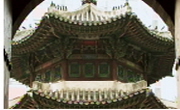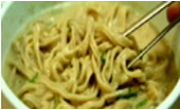이 글은 최남선의 『조선유람가』(1928)의 문학사적·문화정치학적 가치와 의미를 동시에 제고하기 위해 작성된다. 장편창가 『조선유람가』는 1920년대 중반 ‘조선주의’와 ‘불함문화’�...
http://chineseinput.net/에서 pinyin(병음)방식으로 중국어를 변환할 수 있습니다.
변환된 중국어를 복사하여 사용하시면 됩니다.
- 中文 을 입력하시려면 zhongwen을 입력하시고 space를누르시면됩니다.
- 北京 을 입력하시려면 beijing을 입력하시고 space를 누르시면 됩니다.

도래하는 "대조선(大朝鮮)", 귀환하는 "영지(靈地)" - 최남선 『조선유람가』의 문화정치학 - = The Coming “Daejosun”, the Returning “Territory” - Cultural Politics Based on Choi, Nam-sun`s Josun-Yuramga -
한글로보기https://www.riss.kr/link?id=A100177794
- 저자
- 발행기관
- 학술지명
- 권호사항
-
발행연도
2014
-
작성언어
Korean
-
주제어
최남선 ; 조선유람가 ; 경부텰도노래 ; 만한철도창가 ; 백팔번뇌 ; 장편창가 ; 영사시 ; 詠史詩 ; 대조선 ; 일제 ; 식민지 조선 ; 문화폭력 ; 문화정치학 ; 탈식민 ; 경성 ; 창경원 ; 투어리즘 ; 백두산 ; 영웅 ; 금강산 ; 경주 ; Choi ; Nam-sun ; Josun-Yuramga ; Gyoungbu-choldoga ; Manhan-choldochangga ; Baek-palbonnoe ; long changga ; Daejosun ; Great Josun ; Japan`s imper
-
등재정보
KCI등재
-
자료형태
학술저널
- 발행기관 URL
-
수록면
33-83(51쪽)
- DOI식별코드
- 제공처
-
0
상세조회 -
0
다운로드
부가정보
국문 초록 (Abstract)
이 글은 최남선의 『조선유람가』(1928)의 문학사적·문화정치학적 가치와 의미를 동시에 제고하기 위해 작성된다. 장편창가 『조선유람가』는 1920년대 중반 ‘조선주의’와 ‘불함문화’를 널리 표방하기 위해 작성된 시조집 『백팔번뇌』와 기행문 『백두산근참기』 『심춘순례』 「풍악기유」(『금강예찬』) 등에 비해 비교적 덜 알려져 있다. 『조선유람가』는 당시로서는 퇴조기에 접어들던 ‘영사’ 형식을 빌려, ‘대조선’의 영웅과 역사, 인문과 자연 등을 예찬하는 장편창가, 곧 ‘만들어진 전통’이었다는 것이 본고의 입장이다. ‘대조선’의 소환은 서사시적 과거의 기억과 현재화, 그를 통한 조선적 정체성의 확립과 미래로의 투기를 도모하는 탈식민 혹은 저항의 문화정치학이었다. 요컨대『조선유람가』는 실제 여행과 그에 대한 정서의 기록과 표출을 목표하는 시조집이나 기행문과 달리, 과거(역사)와 지리 정보를 자유롭게 통합, 배치함으로써 ‘조선주의’의 폭넓은 확장과 심화를 달성할 수 있을 것으로 상상되고 기대되었다. 본고는 이런 사실들을 논구하고 증명하기 위해 ≪동아일보≫본 『조선유람가』와 이를 수정·보완한 한성도서본 『조선유람가』를 비교 분석하였다. 특히 전자에 수록되었으나 후자에서 탈락한 경성의 창경원 부분, 후자에 보충된 측우기, 활자등을 중심으로 경성과 궁궐을 둘러싼 공간의 지배를 향한 일제의 식민주의 및 그에 대한육당의 탈식민적 저항의 면모를 주의 깊게 살펴보았다. 또한 『조선유람가』의 핵심으로 생각되는 백두산과 영웅 서사, 당시 조선 투어리즘의 핵심 장소 금강산과 경주에 대해서도 복합적으로 검토했다. 먼저 이것들을 ‘조선주의’와 ‘불함문화’의 근원적 장소로 예찬하는 육당의 심미적 시선과 태도를 주목했다. 또한 이것들을 식민지의 폐허화된 유물 내지 식민지 본국의 성스러운 자연에 비해 그 가치가 미약한 공간으로 바라보았던 일제의 식민주의적 시선 역시 고찰함으로써 육당의 탈식민적 문화정치학의 가치를 입체화하고자 했다. 마지막으로 함께 실린 요약본 창가 『조선유람별곡』을 살펴봄으로써 육당이 조선의 역사와 영웅, 자연 등의 우수함을 대중들이 보다 쉽게 체득할 수 있도록 노력했음을 다시 한번확인하고자 했다.
다국어 초록 (Multilingual Abstract)
This article is written to consider the value and meaning of Choi, Namsun`s Josun-Yuramga(1928) from the viewpoint of history of literature. Josun-Yuramga, a full-length changga, is known relatively less than the sijo collection, Baekpalbeonnoe, or tr...
This article is written to consider the value and meaning of Choi, Namsun`s Josun-Yuramga(1928) from the viewpoint of history of literature. Josun-Yuramga, a full-length changga, is known relatively less than the sijo collection, Baekpalbeonnoe, or travel literature, Baekdusan-Geunchamgi, Simchun- sunrye, or "Pungakgiyu"(Geumgangyechan) written in order to publicize the mid-1920`s ‘Josunjuui’ and ‘Bulham Culture’ widely. This researcher sees that Josun-Yuramga was a full-length changga, that is, ‘made tradition’ to admire the heroes, history, humanities, or nature of ‘Daejosun’ adopting the form of ‘Yeongsa’ that went into decline then. The calling of ‘Daejosun’ was the cultural politics of either postcolonialism or resistance to establish the identity of Josun and promote speculation for the future through the epic poem-based recalling of the past and realization of it in the present. As a matter of fact, unlike sijo collections or travel literature intended to write about and express real traveling or emotion towards it, Josun-Yuramga was imagined and expected to integrate and arrange the past (history) and geographical information freely and attain the wide-range extension and deepening of ‘Josunjuui’. To discuss and verify these points, the current study comparatively analyzed Donga-Ilbo-edition "Josun-Yuramga" and Hanseong Doseoedition "Josun-Yuramga" which edited and complemented the former. Especially centering around the part of Changgyeongwon in Gyeongseong contained in the former but deleted in the latter or the part about Cheukugi or Hwalja complemented in the latter, the study profoundly examined Japan`s colonialism pursuing the ruling of space around Gyeongseong and the palace and Yukdang`s postcolonialistic resistance against it. In addition, it complexly investigated Baekdu Mountain and heroic narratives regarded to be the core part of "Josun- Yuramga" and also Geumgang Mountain and Gyeongju, the major tourist sites in Josun at that time. First, the researcher noticed the aesthetic eye and attitude of Yukdang praising these as the sourceful places of ‘Josunjuui’ and ‘Bulham Culture’. Also, considering the colonialistic eye of Japan regarding these as the ruined relics of its colony or space with much less value than the divine nature of the owner country, the study intended to examine Yukdang`s postcolonialistic value of cultural politics multilaterally. Lastly, by looking into "Josun-Yurambyeolgok" along with it, the researcher tries to reconfirm that Yukdang attempted to help the people to acquire the excellence of Josun`s history, heroes, or nature more readily.
1 由村尙樹, "六堂 崔南善 文學硏究" 충남대학교 대학원, 2004
2 최남선, "한양노래" 신문관, 1908
3 최남선, "풍악기유" 매일신보, 1924
4 문성환, "최남선의 에크리튀르와 근대․언어․매체" 한국학술정보, 2009
5 윤영실, "최남선의 근대적 글쓰기와 민족담론 연구" 서울대학교 대학원, 2009
6 류시현, "최남선 평전" 한겨레출판, 2011
7 최현식, "철도창가와 문명의 향방-그 계몽성과 심미성 교육의 한 관점" 민족문학사연구 (43) : 189 ~ 221, 2010
8 김백영, "지배와 공간" 문학과지성사, 2009
9 임상석, "조선총독부 중등교육용 조선어급한문독본의 조선어 인식 :『新編高等朝鮮語及漢文讀本』의 번역과 문체를 중심으로" 동악어문학 (57) : 185 ~ 208, 2011
10 최남선, "조선유람가" 동아일보, 1928
1 由村尙樹, "六堂 崔南善 文學硏究" 충남대학교 대학원, 2004
2 최남선, "한양노래" 신문관, 1908
3 최남선, "풍악기유" 매일신보, 1924
4 문성환, "최남선의 에크리튀르와 근대․언어․매체" 한국학술정보, 2009
5 윤영실, "최남선의 근대적 글쓰기와 민족담론 연구" 서울대학교 대학원, 2009
6 류시현, "최남선 평전" 한겨레출판, 2011
7 최현식, "철도창가와 문명의 향방-그 계몽성과 심미성 교육의 한 관점" 민족문학사연구 (43) : 189 ~ 221, 2010
8 김백영, "지배와 공간" 문학과지성사, 2009
9 임상석, "조선총독부 중등교육용 조선어급한문독본의 조선어 인식 :『新編高等朝鮮語及漢文讀本』의 번역과 문체를 중심으로" 동악어문학 (57) : 185 ~ 208, 2011
10 최남선, "조선유람가" 동아일보, 1928
11 강진호, "조선어독본 2~3" 제이앤씨 : 2 ~ 3, 2010
12 서기재, "조선 여행에 떠도는 제국" 소명출판, 2011
13 에드워드 렐프, "장소와 장소상실" 논형, 2005
14 최현식, "일제 창가와 군가에 표상된 만주 제패의 의미-러일전쟁을 중심으로-" 만주연구 (16) : 103 ~ 140, 2013
15 홍순애, "여행과 식민주의-근대 기행문의 식민․제국의 역학" 서강대학교 출판부, 2014
16 서영채, "아첨의 영웅주의-최남선과 이광수" 소명출판, 2011
17 최남선, "심춘순례" 백운사, 1926
18 황종연, "신라의 발견" 동국대학교 출판부, 2008
19 검열연구회, "식민지 검열, 제도․텍스트․실천" 소명출판, 2010
20 조성운, "시선의 탄생, 식민지 조선의 근대관광" 선인, 2011
21 송건호, "송건호전집 12 : 빛을 남긴 사람들" 한길사, 2002
22 최남선, "백팔번뇌" 동광사, 1926
23 최남선, "백두산근참기" 한성도서, 1927
24 테리 이글턴, "민족주의, 식민주의, 문학" 인간사랑, 2011
25 최남선, "금강예찬" 한성도서, 1928
26 황종연, "고도의 근대" 동국대학교 출판부, 2012
27 최남선, "경부텰도노래" 신문관, 1908
28 崔斗植, "韓國詠史文學硏究" 건국대 대학원, 1987
29 김영숙, "詠史詩의 槪念과 작품의 實相" 동방한문학 (37) : 11 ~ 54, 2008
동일학술지(권/호) 다른 논문
-
향가(鄕歌) 그리고 『삼국유사(三國遺事)』를 통해 본 신라인의 내세 관념
- 한국시가학회
- 서철원 ( Cheol Won Seo )
- 2014
- KCI등재
-
- 한국시가학회
- 전재강 ( Jae Gang Jeon )
- 2014
- KCI등재
-
향가(鄕歌)의 근대·2 - 소창진평(小倉進平)가 『향가급(鄕歌及)び이두(吏讀)の연구(硏究)』에 붙인 자필(自筆) 메모 -
- 한국시가학회
- 고운기 ( Woon Kee Ko )
- 2014
- KCI등재
-
음사 수록에서 교화담론의 한계와 그 이면의 의미 - 김천택과 풍몽룡의 경우 -
- 한국시가학회
- 조성진 ( Seong Jin Jo )
- 2014
- KCI등재





 KCI
KCI KISS
KISS







